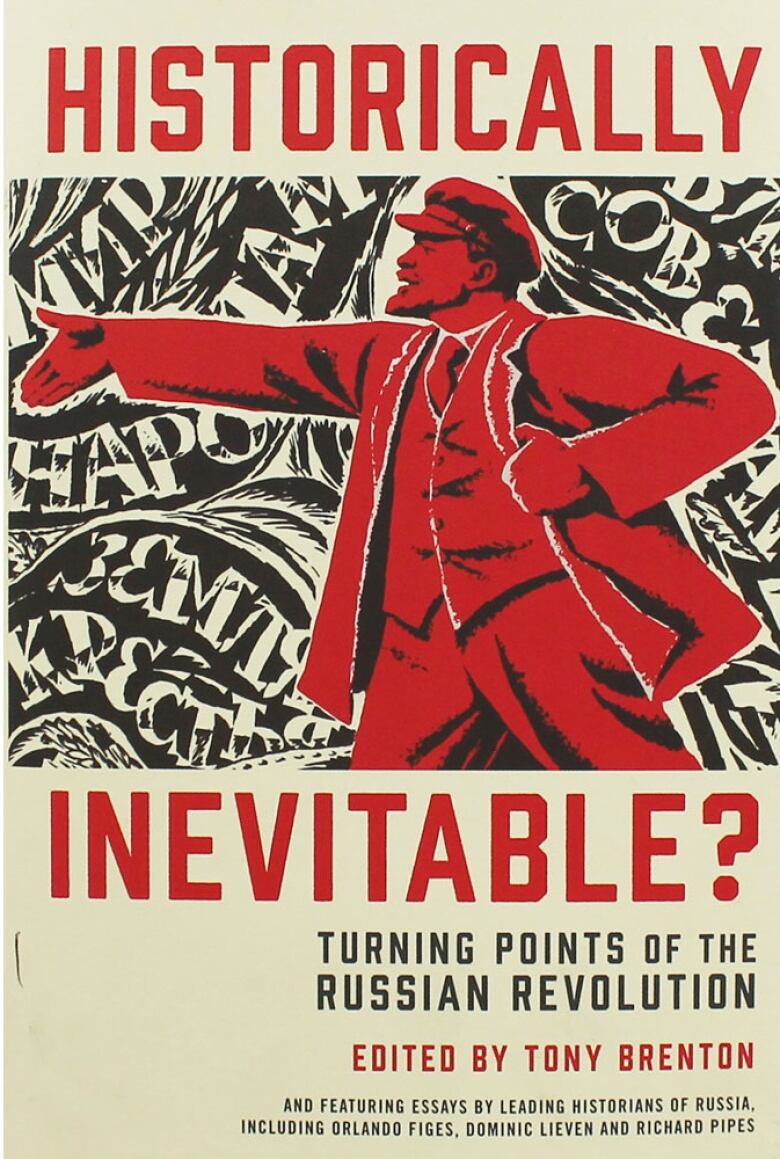'Trump is right. The West needs a better relationship with Vladimir Putin': Sir Tony Brenton

One hundred years ago this month, the Russian Revolution altered the course of history by creating the world's first socialist state.
It proved that radical change was possible.
The revolution also led to the deaths of millions, who were starved or executed.
Today, Russia is ruled once again by an autocrat — President Vladimir Putin.
Over the past two weeks on the program, we looked back at those heady days, and asked whether the revolution was doomed from the start.
- The Sunday Edition: The Russian Revolution — Part 1: From Idealism to Terror
- The Sunday Edition: The Russian Revolution — Part 2: Ten Days That Still Shake the World

Tony Brenton has made a lifelong study of Russian history and had a privileged view of the country's latest transformation under Vladimir Putin.
He had a long and distinguished career as a diplomat, serving as Britain's ambassador to Russia from 2004 to 2008. He's currently a Fellow at Wolfson College at the University of Cambridge, and is the editor of a recent book called Was Revolution Inevitable? Turning Points of the Russian Revolution.
Leninist revolution not inevitable
Brenton's edited volume collects a series of reflections on the pivotal moments in the 1917 Russian Revolution that led to the overthrow of the Tsarist regime.
If the Germans had not spirited Lenin back into Petrograd (St. Petersburg) in 1917, Brenton told Michael Enright, "the Bolsheviks would have been just another opposition socialist party."

Lenin's one-party state
Lenin's greatest political legacy is often considered to be the creation of the one-party state, which has been emulated by dictators and repressive regimes all over the world in the century since the Russian Revolution.
"Lenin inherited his economic doctrine from Marx," Brenton says, "But he literally invented the one-party state."
Brenton argues that Lenin used the Bolshevik party, which he personally dominated, to carry him to power. But, he says, the party didn't have enough people to take over the entire Russian bureaucracy.

"This proved very effective as a means of controlling Russia. And then lots of countries started imitating it, starting with fascist Italy, Nazi Germany, but spreading on down through history, and there are still some today."
"There was at one point something like 60 one-party states, all in effect modelled after Lenin's original system," Brenton adds.
Has the Russian Revolution come full circle?
Brenton says we need to be careful in the West about arguments that frame Vladimir Putin as the new Tsarist Russian president.
"Russia is obviously a problem for us in all sorts of ways, and we tend to put all of this down to Putin: he's authoritarian, he's aggressive, he's expansionist, all of this. He isn't, actually, but he is a problem for us with all this hacking, and so on."
"But as we pin everything on Putin," Brenton adds, "we forget the Putin is very representative of today's Russia."
Russians are angry at the West, he says, and proud of their country. And Putin has recreated Russian self-respect.
"He's imposed order in the streets, which was certainly not the case when Yeltsin was there. And he enjoys popular support among Russians of 70-80 percent consistently," Brenton says.

"I think Putin's going to be around for awhile, and even if he did go... what you would get would almost certainly be a clone. Another man who can control the security agencies. A man who can control the big nationalized industries and knows the manoeuvres you need to do that. A man who responds to a Russian taste for strong government," Brenton says.
The Russians, he adds, "often have polls on whether they prefer freedom and democracy, on the one hand, or order on the other. And regularly, they plump in large majorities that they would rather have order than freedom."
Russian tampering with the U.S. election
Brenton believes evidence for Russia's tampering with the U.S. election and democratic processes in other countries is quite strong.
The reasons, however, are less clear, he says.
"I've dealt a lot with American intelligence agencies and their word is pretty reliable most of the time... I suspect that the level of tampering has been massively exaggerated and the level of their cyber activity has been massively exaggerated. But they undoubtedly tampered and you're led to ask yourself, why would they shoot themselves in the foot like that?"
Brenton has a few theories.

"Secondly, they're good at it, as we've seen. They fear the West. And one of the key reasons why they're behaving the way they are at the moment is they see us as intent on surrounding them, victimizing them, overthrowing the regime... They're looking around for poor man's weapons. They have one-tenth of our military expenditure, so they're finding other ways of proving to us that they can fight back.
"And the third reason, I suspect, and this is a sad reason, is that they've drawn the conclusion given the current state of relations with the West that they've got nothing to lose."
Click 'listen' above to hear the full interview.